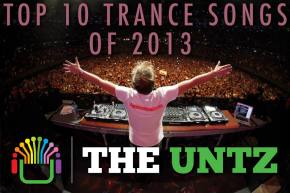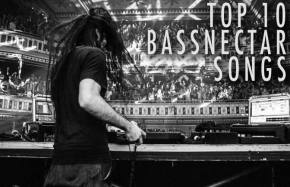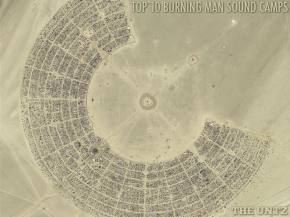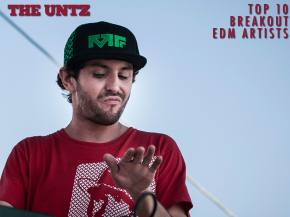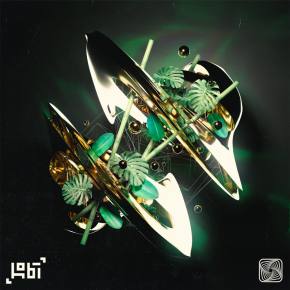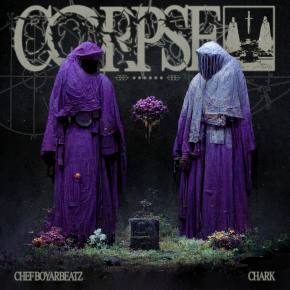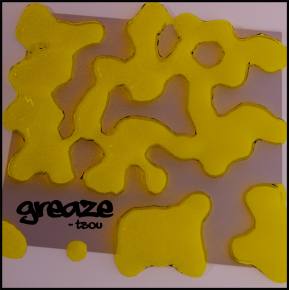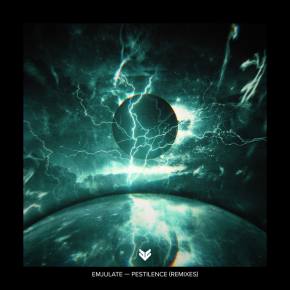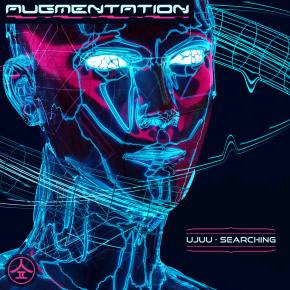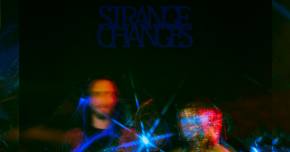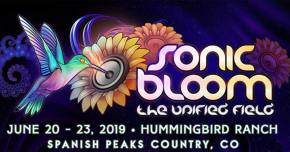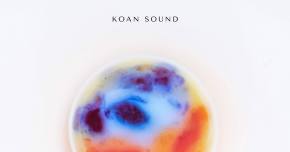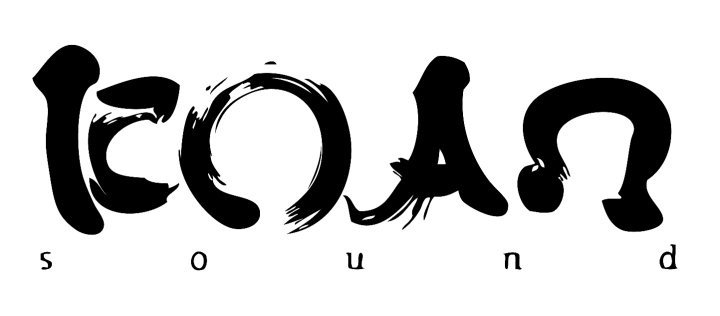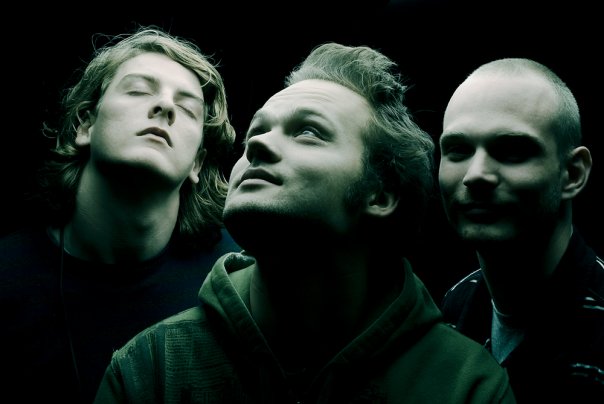Interview by: Elliott C
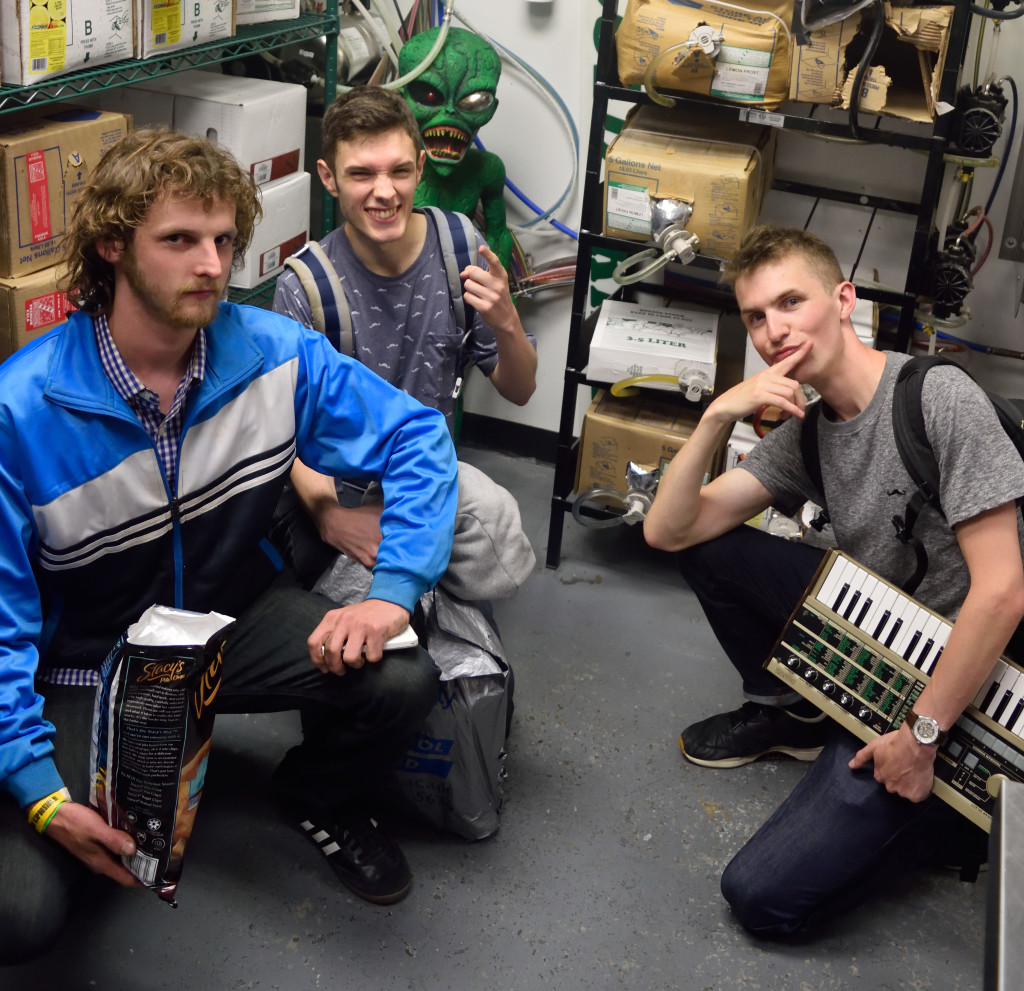 When we’re talking sound design, musical aptitude, and overall production quality in electronic music, few artists hold a candle to KOAN Sound. Years ago, when a roommate first ran “Sly Fox” for me, something snapped in my head and I left “home” in hip-hop to start covering electronic music. Ever since, I’ve tracked KOAN’s activity and made several attempts to speak with them.
When we’re talking sound design, musical aptitude, and overall production quality in electronic music, few artists hold a candle to KOAN Sound. Years ago, when a roommate first ran “Sly Fox” for me, something snapped in my head and I left “home” in hip-hop to start covering electronic music. Ever since, I’ve tracked KOAN’s activity and made several attempts to speak with them.
After scores of wordy interview proposals to their manager and a literal stand-up in a downpour outside the Dream Hotel in Manhattan last year, (after which I quit the business for sometime) I was finally obliged in the green room at [Philadelphia's] Soundgarden Hall recently in order to squash the beef, and clear up some inconsistencies in their story as rendered for American audiences. What follows is the unadulterated transcript of that exchange with Jim Bastow and Will Weeks.
KOAN Sound was recently announced as the headliner of Infrasound Equinox, returning to NCN Campground in Black River Falls, WI from September 17-20, which features tons of talent from the glitch world including Michal Menert, Liquid Stranger, Desert Dwellers, ill-esha, Love and Light, Stylust Beats, and CloZee, among others.
Elliott C: You guys haven’t spoken much about your work beyond a few scattered interviews over the years. Why is that? Is it difficult say the ‘right’ thing about your music, or describe exactly what KOAN Sound is?
Jim Bastow: It’s not just that though, I think part of the reason we don’t do much press is that interviews, once you put them on the internet are there forever, and that’s daunting, that they’re there forever…
Will Weeks: That’s not really answering the question, though (laughs).
EC: Sure it is.
Will: Ok, ok. Fair enough.
Jim: Well, you can take over.
Will: …
Jim: I guess- both of us are just pretty bad at being on the spot and thinking on our feet.
Will: (Laughing) Why this specific question? Ask me, how did you make that bass line?
EC: Sorry man, you won’t get too much of that from me, I’m more of a socio-cultural critic.
Will: Ah, shit.
EC: If I had my boy with me, my producer buddy, as in last year’s infamous botched interview attempt, there would’ve been some more of that, but now, well, you guys are stuck with me.
Jim: Well then, to better answer your question, I’d say we never felt, or don’t feel, the need to describe what we do.
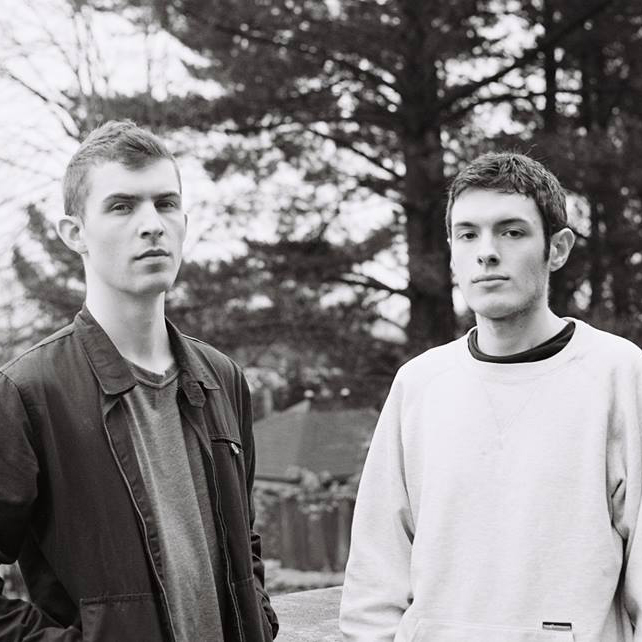 EC: Fair enough. So, many sources in their “about KOAN” blurb refer to several “unsuccessful” projects you and Will were involved in before forming KOAN Sound. That always seemed an odd statement to me, and I wonder what these “unsuccessful projects” could have been.
EC: Fair enough. So, many sources in their “about KOAN” blurb refer to several “unsuccessful” projects you and Will were involved in before forming KOAN Sound. That always seemed an odd statement to me, and I wonder what these “unsuccessful projects” could have been.
Jim: What? Who said they were unsuccessful?
EC: Several different blogs, promotional blurbs for events, etc. – I’ll get back to you on the specifics when I locate exact source, though I’ve read that specific line reiterated a million times. The sentiment is something to the effect of “they went through several projects with unsuccessful results and finally emerged from 'the ashes' as KOAN Sound."
Will: I don’t agree with that at all, and I don’t know where that came from. These guys must be referring to the band we used to be in, which was anything but a failure. In our eyes it was one of the most fun parts of our lives if anything--full of musical improvisation and fun with friends.
Jim: That was the main reason we were in a band. At that age you’re not thinking about your music in the context of a scene, because no one is going to hear your music. We were 13 or 14, literally just doing it for ourselves, for fun.
EC: Alright, so now we’ve cleared that up--I’ve heard quite a bit about “the water” in Bristol, and how it turns out so many musicians and producers. What’s in the water, and how have so many producers come to be concentrated in such a small city?
Jim: A lot of different factors really: the history and the heritage firstly, Bristol has always been associated with a very strong underground music scene, which is inspiring for younger producers to be a part of. Obviously, a lot of well known electronic musicians have emerged from the scene in Bristol over the last 20-30 years, like Massive Attack, Portishead, and Tricky, as well as countless others more closely tied with drum & bass and dubstep. There’s an infrastructure for producers, a good scene, a great community. Traditionally, Bristol has always had record stores--hubs where people can meet and talk.
Will: Which meant we picked up production at that early age. I still remember my brother coming home with a NOISIA vinyl– that was the first time I heard drum and bass.
Jim: It’s just the exposure you get in Bristol, I mean, we were 13, hearing drum and bass, I don’t think, well, I’m not sure there are too many places where that happens.
EC: I know I’m just an American, but I never heard a drum and bass tune until I was 17 and went to college, where a Londoner lived on my floor.
Jim: Yeah, and I mean access to internet has changed that now, but this was when most people still had dial-up, a pretty different time.
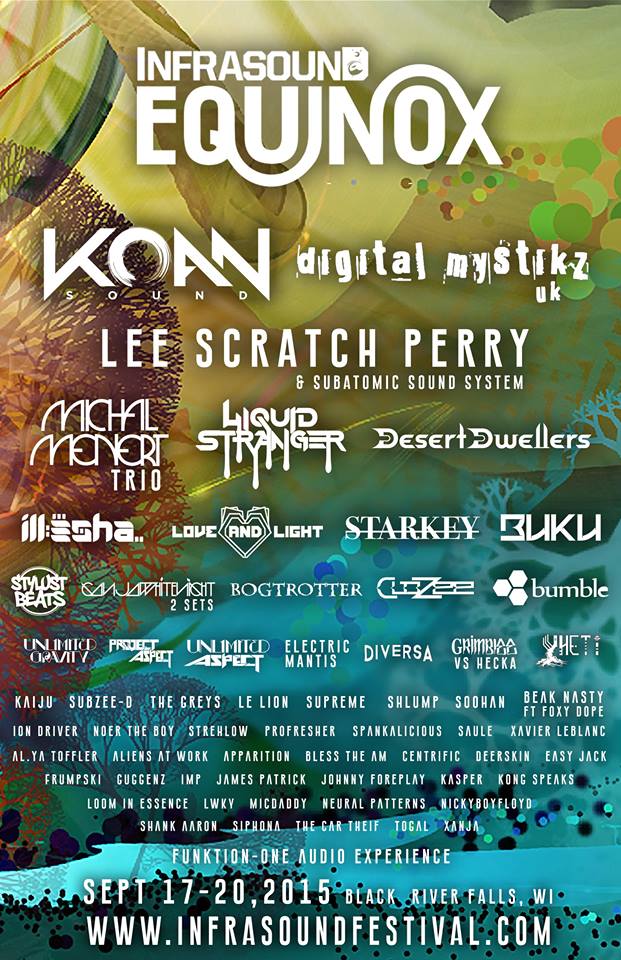 EC: Absolutely. So, before OWSLA, there were a few other labels you released under, notably Inspected, a crew that’s assembled quite the roster of their own in recent years. Can you tell us more about Inspected’s role in your early releases, and your involvement with them now--I mean, you’re both wearing Inspected Gear right now.
EC: Absolutely. So, before OWSLA, there were a few other labels you released under, notably Inspected, a crew that’s assembled quite the roster of their own in recent years. Can you tell us more about Inspected’s role in your early releases, and your involvement with them now--I mean, you’re both wearing Inspected Gear right now.
Will: We only ever wear Inspected because they send us so much.
Jim: That’s the only reason I’m friends with Ryan [Leech, founder of Inspected Records].
EC: (Laughing)
Jim: No, actually, don’t print that.
EC: Don’t worry, I doubt many Americans will make the connection.
Will: Well anyway, our first release with Inspected [Max Out] was the one where we expanded--
Jim: It was the first time we did an EP with four tracks- so we had a chance to experiment. Inspected as a label though, we’ve always felt like misfits or oddballs in the scene. We don’t really fit in anywhere. Together, all the artists on the Inspected roster are all doing our own weird things, and it works as a whole.
EC: Max Out is of course the record that made your name what it is today, critics and longtime followers all point to a shift in your production that record signaled. What would you say about the change from your “early” work to the “mature” sound on Max Out? In our simplest terms, how’d you turn up.
Will: To us it wasn’t too different, just a new idea to try out using what we’d learned making mostly dubstep at that point, and having a fascination with neuro drum and bass sounds and applying them to--
Jim: Hip-hop tempo.
Will: Yeah, 100bpm, sort of funky hip-hop 100bpm… I guess that wasn’t really going on at the time, and it made us stand out a bit more (checks with Jim).
Jim: Yeah, I agree with that.
EC: From that point on you’re been known for heavy concept integration in your tracks--“Meanwhile in the Future” is one of the most successful concept tracks yet made, a track almost narrative in shifting time and using glitch to jar listeners from “past” to “future.” Does adding another level of abstraction into your music present an additional challenge? Is there something else we get out of a track like that? Or is this all just dance music at the end of the day?
Will: Tracks like those don’t require much more thought than another, the idea happens organically, like a drum loop or a bass sound it just… appears.
Jim: I don’t think we’ve ever put abstraction in music for the sake of abstraction in music. It’s more about sound, if it sounds good, do it and… don’t think too much more about it.
EC: Indeed. It’s funny, Opiuo had said something similar in our last exchange. Moving on then, how do you feel about electronic music as “dance music.” Would you be remiss to hear that’s as far as some get when it comes to electronic music?
Jim: Would I be what? Sorry.
EC: Remiss- uh, sorry- disappointed to hear that some people reduce your tunes to nothing more than “dance music.”
Jim: I’m not sure. To be honest, I don’t even listen to, and I don’t think you [Will]--listen to much dance music--
Will: Apart from drum and bass.
Jim: We still listen to drum and bass. Not to say we don’t listen to a lot of electronic music. A lot of it just isn’t dance music.
EC: Any reason for that? Do you feel you music is an opposition to popular dance music?
Jim: Not really. For us as producers it’s mainly because we had spent so much time in clubs listening to dance music that when we want to be inspired to write music, we listen to other stuff--
Will: Like funk or jazz--
Jim: Metal.
EC: I’ll admit dance music can be exhausting listening. Now, for something a bit different--I want to play sort of a game based on your production for rappers in the past-
Jim: Just the one track-
EC: UK crew Foreign Beggars on “Look Who’s Back.” Anyhow, I’d like to do a little thing where I name American rappers and you say whether you could see them on a KOAN track--
Will: And whether we’ve heard of them or not.
EC: Ok, so here we go- KRS One.
Jim: Yes.
Will: Yes.
EC: Juicy J.
Will: Don’t know.
EC: Three-Six Mafia?
Jim: I know who Juicy J is.
EC: So that one is up in the air I guess. Alright… uh, Drake.
Will: Yeah. Yeah.
Jim: Yeah, that could work. I could see that.
EC: Nice. 2 Chainz.
Will: (Laughing) Uh--I don’t know who that is…
EC: What? Come on, Space Jesus just ran a 2 Chainz remix.
Jim: (Laughing) All these people I know, I just don’t really know their music.
EC: “Show up to the scene with my ceiling missing? Show up to the scene with my roof gonnnnne. I’m different, yeah I’m different…”
Jim: You’d have to ask Asa these questions.
EC: Funny you should say that, I ripped that line and had him in stitches over our last interview. I guess that’s one thing Americans are good for--a laugh.
Jim: Ha.
EC: Alright, so thanks for enduring that, and back to glitch-hop. In my first interview with Oscar [Davey-Wraight]--Opiuo, he mentioned you originally reached out to him for the “Sly Fox” Remix. I wondered, when did you first hear his tunes, and which specific track drew you to his sound?
Will: Probably “Robo Booty”?
Jim: Yeah, it’s funny, when we first started making midtempo tunes, we didn’t know anyone else was doing a similar thing, we’d never heard of Opiuo, and I’d only heard a couple of Tipper tracks. We were looking for tunes to play out, so I asked a friend or ours, another guy on Inspected, Jayglo, and he turned us onto Opiuo.
EC: He recently mentioned you all were looking to log some studio time in Australia together, something you’re looking forward to later this year?
Will: That’s true, yes.
EC: I even heard you guys had started some tracks together in Bristol.
Will: We started one track, it was a couple of years ago, and… we still haven’t finished it yet. We worked so well in the very short space of time we had together though, so I’m sure getting back to it is going to be as much fun.
EC: Right, so your latest release, Forgotten Myths, is a difficult record to place in your catalog, just yet. Can you give us some basics on the record, when did production begin? What was the original concept and creative process like? What were some new things you went for… anything like that.
Jim: So the production started a about a year ago, and we finished it in February?
Will: Yeah. It took awhile to come out.
Jim: It didn’t come out until May. We decided to self release it in the end--there were a lot of different factors involved in that decision. Mainly though, we just had wanted to do that for some time, release something 100% independently-
EC: I think we’ve all been waiting for that--
Jim: Yeah, it’s not really on iTunes or anything, just Bandcamp, [and now, Spotify]. As far as concept, we wanted this project to be a little less funky, less like the Dynasty EP and more indebted to our drum and bass roots.
EC: Your set tonight seemed heavily weighted on that side as well--
Will: Yeah, and on Forgotten Myths, we just wanted to include more of our influences from that neuro/drum and bass side, even the metal we’re into… Hans Zimmer, the dark, epic side of things--
Jim: Yeah, the epicness. I know that’s a really overused word, but we wanted Forgotten Myths to have that feel, even the artwork--our artwork is like game concept art, it has that sort of cinematic, soundtracky edge--
EC: Have you used the same visual artist for all your previous work?
Jim: There’s a few artists we’ve used, this time we asked Dan Hoang [Somnovus] who does work for Asa– we knew Dan through Asa, he did the album art and video for the Sanctuary EP, along with Will’s brother John Weeks, who does our visual animation. Dan was the only other person involved with the whole process of Forgotten Myths, really--we kept the project very small.
EC: Your tour this year is considerably smaller than in years past. Are you guys getting tired?
Will: Uh, no. That decision came from a desire to spend more time in the studio--
Jim: Our music is taking so much longer to write nowadays--honestly, in the past years, well not so much last year, but the two years before that, we spent so much time touring that we were never at home. We need a lot of time to make good, quality music and--
Will: We’re getting more ambitious about what we want to make and--
EC: You have that perfectionist problem where something’s never good enough?
Will: Oh yeah. Definitely, yeah. Its super-hard…
EC: How does that production process play out between the two of you, as a duo?
Will: Well Jim more has that musicians mindset, more the chords and the melodies, like, if I need complex chords, then I’ll go straight to him, then I provide more on the producer’s standpoint from there.
EC: Right. So what’s the real “philosophy” behind KOAN Sound? You’re generally known as a hybrid project of “eastern” and “western” influences--
Jim: (Laughing) Really?
EC: Come on man, I’m getting at something here- the “west” makes sense as per your geographical locus, but how does the “east” factor in as this ultimate influence in your musical personality. I wonder, is it just another meaningless cultural appropriation as some have suggested?
Jim: Yes.
(All laughing)
Will: It sounds really nice--and that’s it.
Jim: But really, there’s so much more to it.
Will: Well the eastern sounds, and our progressions, they have that foreign intrigue--
Jim: Wait, I don’t think he’s asking so much about the sound as the cultural aspect--
EC: Well, both actually- they’re “intertwined” I feel, and critics like myself wonder how you can “lay claim” to those eastern mores…
Jim: Well, like many westerners, we’re fascinated by eastern culture, specifically, Japanese culture--
Will: That’s true--
Jim: The games and music--
Will: That’s a great point- I hear a lot of Japanese music in the games I play, I play a lot of games, so it just soaks in--
Jim: And we grew up with all of that too--
EC: And that is interesting, seeing as video games are like the single greatest aspect of eastern culture that has inundated the western world in the modern era, moreso than any ideology or spiritual--
Jim: Oh yeah, games and technology in general, two things that’ve really come over from Japan and dominated the culture, but it’s not only that, we’re also interested in their culture itself, how different they are from the west, juxtaposition between the two spheres…
EC: Do you personally embody eastern values or spirituality in you own lives?
Jim: Not explicitly.
Will: It’s more of an appreciation for the art that comes out of the east.
Jim: I mean, we all can relate, like, reading books about Buddhism, I mean, I’m not a Buddhist by any means--
EC: I was going to say, bass music and Buddhism are… well I can’t really see you guys throwing down a set in a monastery in Nepal or… well, I can’t imagine that would go over.
Jim: Who knows?
EC: Ok, so last question--the person who has had the single greatest personal effect on your music. Can be a musician or not, but has to be a personal connection.
Will: Well… there’s a few actually-
Jim: NOISIA–
Will: NOISIA, musically, and in terms of sound design--the production quality we strive to achieve has to measure to that, because we’d heard it from such an early age--but I guess the second person would be my brother, because he showed us NOISIA and the programs to make music to begin with.
Jim: Yeah, his brother John was instrumental in--
Will: “Sowing the seed”--
Jim: Without even meaning to at all--we’d sneak into his bedroom and listen to the stuff he was making in Reason, crazy stuff like ten-minute, progressive jungle tunes--
Will: I feel like we would have found our niche anyway, but it happened so much sooner because of him.
EC: NOISIA and…John.
Jim/Will: John Weeks.
KOAN Sound’s latest EP, Forgotten Myths, is now available for free download via Bandcamp. Catch them at Infrasound Equinox in mid-September.
This interview originally ran at Electricept on August 15, 2015.






